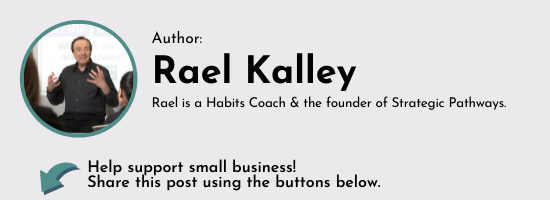“It ain’t what you don’t know that gets you in trouble. It’s what you know for sure that just ain’t so.”
This quote, often attributed (seemingly erroneously) to Mark Twain, provides a lighthearted yet accurate depiction of the perils we carve out for ourselves when we naïvely believe that our opinions represent facts.
Cognitive dissonance which, as defined by Wikipedia, is the mental discomfort (psychological stress) experienced by a person who holds two or more contradictory beliefs, ideas or values, is also used as the term for describing people who so strongly believe in a thought, ideology, doctrine or method, that they are unwilling to even entertain the possibility that they may be wrong.
“What we know for sure …,” as the quote tells us, is frequently “just ain’t so” and yet we gladly and freely inject our viewpoints into conversations and then angrily insult those who dare to challenge us.
An old axiom tells us that “some people are so narrowminded they can see through a keyhole with both eyes” and while this quote may well be lost on anyone under the age of 40, it does remind us that every story has a side which differs from ours
We define ourselves by what we believe to be true and those who are willing to hold their truths up to the light for close examination and then be further open to replacing those truths with new ones, will live lives far less filled with stress and anxiety than those committed to the notion that their beliefs represent fact and are not open to examine alternate possibilities.
Obviously, the ratio of facts to opinions is unknown but it is safe to assume that any topic that has both supporters and detractors is a topic in which opinions outweigh facts by an enormous multiple.
An interesting case in point is the ongoing raging controversy surrounding the pending impeachment of US President Donald Trump.
On one side there is an angry army of people – mostly Democrats – indignantly telling all who will listen that the transcript of the phone call between the US president and the Ukrainian president provides clear and unequivocal evidence to proceed with impeachment. At the same time, legions of furious opponents – mostly Republicans – pointing to the same document, are loudly shouting that it does not contain one scintilla of evidence of any wrongdoing.
Both sides can’t possibly be right, can they?
We all hold beliefs that we know to be true. We never question them and will willingly fight anyone who dares to challenge them.
Yet sometimes these beliefs are the very things that stand between where we are today and we would like to be.
If we accept as a truth that the past does not equal the future, then we free ourselves to examine every limiting belief we have developed about ourselves; to hold tightly unto those that serve us well and to permanently discard those that don’t.
But for that to happen we need first to accept as an irrefutable truth that “It ain’t what you don’t know that gets you in trouble. It’s what you know for sure that just ain’t so.”
And that’s a fact.
Till we read again.


